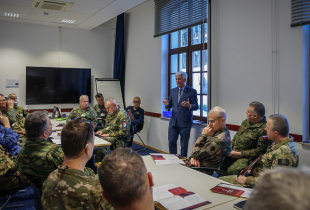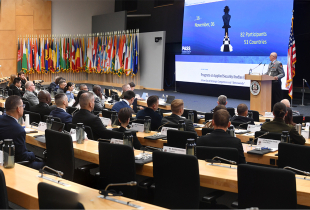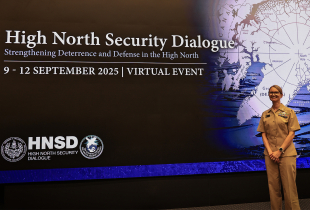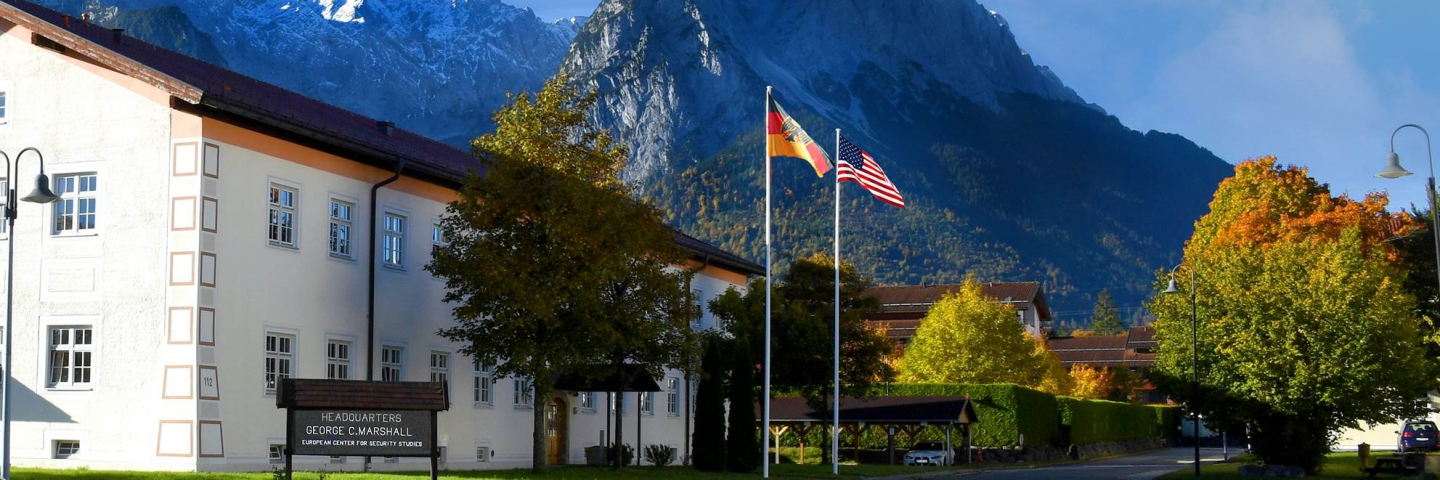
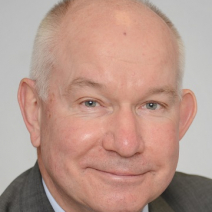
Fritz Rademacher
Areas of Expertise
- International Security
- Transatlantic Relations
- NATO
- European Security and Defense
- NATO-EU relations
- Emerging and Disruptive Technologies and Innovation
- Arms Control, Disarmament, and Non-Proliferation
Academic Degree
- Master of Arts in Political Science, History, and
International and Public Law, Rhenish Friedrich Wilhelm
University of Bonn, Germany
Fritz Rademacher rejoined the George C. Marshall European Center for Security Studies in September 2020 as professor of international and security studies, having previously served at the Center from 2006–2008.
Prior to rejoining the Marshall Center, Rademacher was the political advisor to the Supreme Allied Commander Transformation at NATO headquarters in Brussels.
Over the past three decades, Rademacher has held senior positions at NATO and the EU dealing with a wide array of strategic and politico-military issues. These positions include NATO-EU relations, NATO-Russia, NATO’s interaction with partners in the Asia-Pacific, and NATO defense policy, planning, and cooperation.
His experience with the EU includes security and defense policy, crisis management, international cooperation, and EU operations and exercises. Nationally, he has worked at the German Ministry of Defense on politico-military affairs and bilateral relations, including with the Asia-Pacific. In his time at the German Foreign Ministry, he served as advisor to the German Delegation to the Conference on Disarmament in Geneva during the final phase of the negotiations leading to the Chemical Weapons Convention.
Rademacher’s background in academia includes published works related to NATO policy, NATO-EU relations, arms control, and international security. He is a former Foreign and Commonwealth Office scholar at St Antony's College in Oxford; a visiting fellow at the American Institute for Contemporary German Studies in Washington, D.C.; and a Volkswagen fellow and assistant to the director of studies at the German Institute for International and Security Affairs in Berlin. He is a member of the International Institute for Strategic Studies in London and the German Council on Foreign Relations in Berlin.
